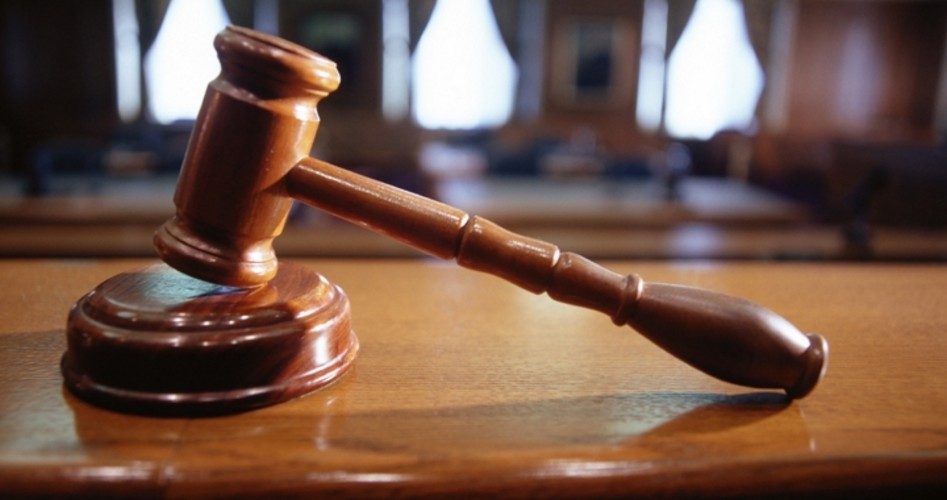
On Monday, U.S. District Judge Wendy Beetlestone in Philadelphia issued a nationwide injunction to block the Trump administration from enforcing new rules to allow employers broader exemptions from ObamaCare’s contraception mandate just one day before the new rules were to take effect.
The Supreme Court had already ruled that groups such as Hobby Lobby are protected by the Religious Freedom Restoration Act of 1993, which states that an individual’s religious expression shouldn’t be “substantially burdened” by a law unless there is a “compelling government interest.” In other words, they should not be required to pay for contraception and abortion-inducing drugs in their employees’ health plans in violation of their religious beliefs.
But the Trump administration sought to broaden the exemptions outlined in the 2014 Hobby Lobby case. The new rules would have allowed non-profit and for-profit employers, including publicly traded companies, to receive exemptions based on their religious beliefs, and would have provided moral objections exemptions to public companies.
In 2017, attorneys in Pennsylvania, California, and several other states filed lawsuits to overturn the new rules.
In Monday’s 65-page opinion, Judge Beetlestone wrote that the new rules would bring about “harm” to the states:
Fundamentally, given the harm to the States should the Final Rules be enforced — numerous citizens losing contraceptive coverage, resulting in “significant, direct and proprietary harm” to the States in the form of increased use of state-funded contraceptive services, as well as increased costs associated with unintended pregnancies — a nation-wide injunction is required to ensure complete relief to the States.
Judge Beetlestone’s ruling came one day after a federal judge had issued a preliminary injunction on the new rules.
On Sunday, Judge Haywood Gilliam, an Obama appointee, ruled that the Trump administration’s rules had the potential to cause “dire public health and fiscal consequences” as states would have to contend with increased costs in order to provide contraceptive care in clinics. Unlike Judge Beetlestone’s ruling, Gilliam’s ruling applied only to the District of Columbia and 13 states, as he limited his ruling’s impact to just the states that brought the lawsuit before him.
Sunday’s and Monday’s rulings mark significant victories for the pro-abortion attorneys, who were delighted by the two rulings.
“Newsflash: Birth control is health care — no matter what the Trump-Pence administration thinks or whether your boss agrees with it,” Planned Parenthood tweeted Sunday.
“Today’s ruling is a victory for the health and economic independence of women in Pennsylvania and across America,” Pennsylvania Attorney General Josh Shapiro, who led the lawsuit, said in a statement following Beetlestone’s ruling. “Women need contraception for their health because contraception is medicine, pure and simple.”
But the Trump administration contends that the rules were intended to protect religious freedoms and that the rulings stand in direct contrast to those constitutional protections.
“No American should be forced to violate his or her own conscience in order to abide by the laws and regulations governing our health care system,” said Caitlin Oakley, spokeswoman for Health and Human Services. “The final rules affirm the Trump Administration’s commitment to upholding the freedoms afforded all Americans under our Constitution.”
The two rulings could force groups such as the Little Sisters of the Poor, an international group of charitable nuns, to have to pay for contraceptives and abortions in violation of their religious beliefs. A 2016 Supreme Court decision in Zubik v. Burwell required the HHS to revise its rules to exempt groups such as the Little Sisters from having to adhere to the contraception mandate, but new lawsuits forced the nuns back into court to defend their freedoms.
Mark Rienzi, president of the Becket Fund, a legal group representing the Catholic religious order of nuns, said the nuns will continue to fight in court to protect their rights, as they have done since 2013.
“We pray that soon this trying time will be over; that the court will rule as the Supreme Court ruled in 2016 that the government doesn’t need us to provide these services to women. As Little Sisters of the Poor, all we want is to follow our calling of serving the elderly poor,” Mother Loraine Marie Maguire of the Little Sisters of the Poor said in a statement.
According to Life News, while the Obama administration provided exceptions for major corporations such as Pepsi and ExxonMobile, it refused to provide religious exceptions for the Little Sisters of the Poor and other religious organizations.




